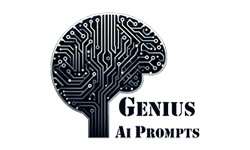AI Business Secrets: Discover 6 Tips for Effective Solutions
In today’s fast-changing digital world, artificial intelligence is more than just a buzzword. It’s a key strategy for staying ahead. Every business leader must decide: adapt with AI or risk falling behind.
Thank you for reading this post, don't forget to subscribe!The path to AI in business is about empowering your team, not replacing them. It’s about growing your digital business to new heights. Whether you’re a startup or a big company, AI can unlock new possibilities.
Small and medium-sized businesses are leading the way in AI innovation. Companies like LiveX AI show how AI can change customer experiences and make operations more efficient. The secret is that AI must be tailored to solve specific business problems.
Table of Contents
Key Takeaways
- AI is a strategic tool for business transformation, not just a technological trend
- Effective AI implementation requires a holistic approach
- Small businesses can leverage AI to compete with larger enterprises
- Building an AI-ready culture is key for successful adoption
- Continuous learning and adaptation are essential in the AI landscape
Understanding the AI Revolution in Modern Business
The digital world is changing fast, with AI playing a big role. AI is now a real part of business, changing how companies work and compete.
Today, businesses are seeing big changes in technology. AI is being adopted in many areas, opening up new chances for growth and better efficiency.
“AI is not just a technology trend, it’s a strategic imperative for modern businesses.” – Tech Innovation Quarterly
The Current State of AI Adoption
Recent studies show how AI is being used:
- 36% of IT leaders see AI as key to staying ahead
- 63% of companies say AI is their biggest investment
- Finance and healthcare lead in AI use
Why Businesses Need AI Integration
AI brings many benefits for companies looking to change digitally. It helps by:
- Automating simple tasks
- Handling big data fast
- Creating predictive insights
- Improving customer service
Key Benefits of AI Implementation
| Benefit Category | Impact |
|---|---|
| Operational Efficiency | Reduce costs, streamline processes |
| Decision Making | Data-driven strategic insights |
| Customer Service | 24/7 intelligent support systems |
The AI revolution is changing business, bringing new chances for those who embrace technology.
Common Challenges in AI Business Implementation
Businesses face many hurdles when trying to use AI. AI has great benefits, but companies must tackle several big challenges to make it work well.
“AI is transformative, but it’s not a magic solution – it requires strategic problem solving and thoughtful planning.” – Tech Innovation Expert
Some major hurdles in using AI include:
- Data Privacy and Security Risks
- Managing AI Model Biases
- Adapting the Workforce and Closing Skills Gaps
- Integrating Complex Systems
- Limitations in Computing Resources
For AI to work well in business, companies need to be well-prepared. Deloitte says 94% of leaders think AI will change their industries. But only 26% are really getting value from it.
| Challenge | Impact | Mitigation Strategy |
|---|---|---|
| Data Quality | Directly Affects AI Performance | Robust Data Governance |
| Computing Capacity | High Operational Costs | Strategic Cloud Resource Management |
| Skill Gaps | Reduced AI Effectiveness | Continuous Training Programs |
To plan for AI, businesses must understand these challenges. Proactive approaches like training, strict data rules, and ongoing learning can help companies use AI effectively.
AI Business Secrets: Essential Knowledge for Success
Understanding AI is key to success. It’s not just about the tech. It’s about using AI to change how your business works.
Identifying Valuable AI Opportunities
Start by finding where AI can make a big difference. Here are some tips to help you:
- Analyze repetitive tasks that consume significant human resources
- Examine areas with large data processing requirements
- Look for processes needing rapid decision-making
- Identify customer interaction points requiring personalization
Building a Strong AI Foundation
Building a solid AI base needs careful planning. Over 90% of leading companies are increasing AI tool investments to improve operations and customer experiences.
“AI is a tool for making better predictions and forecasting trends more effectively” – Prediction Machines
Creating an AI-Ready Culture
AI success is not just about tech. It’s also about changing your company’s culture. Encourage learning, try new things, and see AI as a team player.
- Promote AI literacy across all organizational levels
- Create safe spaces for employees to explore AI technologies
- Develop cross-functional AI training programs
- Celebrate AI-driven innovations and successes
By using these strategies, you’ll gain valuable insights and lead in tech innovation.
Data-Driven Decision Making with AI Tools
Transforming business strategy requires embracing AI tools that revolutionize decision-making processes. Modern organizations are discovering powerful ai business hacks. These hacks enable rapid, accurate insights from complex data landscapes.
AI-powered analytics provide unprecedented problem-solving capabilities for businesses. These intelligent systems analyze massive datasets with remarkable precision. They identify patterns humans might overlook.
“Data is the new oil, and AI is the refinery that transforms raw information into strategic gold.” – Tech Innovation Experts
Key AI Decision-Making Advantages
- Reduces human error by 70% in critical decision processes
- Accelerates data analysis speed by 5x compared to traditional methods
- Provides predictive insights across multiple business domains
Strategic AI Tool Implementation
| Business Area | AI Tool Impact | Efficiency Gain |
|---|---|---|
| Financial Planning | Risk Assessment | 45% improved accuracy |
| Marketing | Customer Prediction | 60% enhanced targeting |
| Operations | Resource Optimization | 50% cost reduction |
Your business can leverage ai tools to transform raw data into actionable strategies. By integrating advanced analytics, you’ll unlock deeper market understanding and competitive advantages.
Successful implementation requires selecting appropriate AI solutions. It also means understanding your specific business needs and continuously refining your approach. Remember, AI amplifies human expertise, not replaces it.
Strategic Integration of AI in Products and Services
Understanding AI is key for businesses today. With 73% of leaders embracing AI, knowing how to use it is essential. It’s about making AI work for your business.
AI strategies need careful planning. Focus on areas where AI can make a big difference. This includes improving products and making decisions easier.
Selecting the Right AI Solutions
Choosing the right AI tools is important. Look at these factors:
- Does it match your business goals?
- Can it grow with your business?
- Will it work with what you already have?
- Is it worth the cost?
Implementation Best Practices
AI integration needs a solid plan. Here are some effective methods:
- Check if your organization is ready for AI.
- Plan how to manage changes.
- Make sure your data is good quality.
- Set clear rules for using AI.
“Understanding AI capabilities and limitations is key for successful integration.” – AI Strategy Expert
Measuring ROI from AI Investments
It’s important to track how well AI is doing. Use these metrics:
| Metric Category | Key Performance Indicators |
|---|---|
| Efficiency | Task automation rates, time saved |
| Financial Impact | Cost reduction, revenue growth |
| Customer Satisfaction | Response times, personalization levels |
The AI market is growing fast, at 37.3% CAGR by 2030. Integrating AI is not just good, it’s necessary. By choosing wisely, implementing well, and measuring results, businesses can change for the better.
Security and Risk Management in AI Business Solutions
Keeping your digital business safe from AI risks is key for success. Artificial intelligence offers great chances but also big challenges for today’s companies.
“Transparency in AI use through clear policies and staff training helps build trust and ensure accountability.” – AI Governance Expert
Your business needs to tackle tough security issues with AI. The dangers are many and need a smart plan:
- Data privacy vulnerabilities
- Potential intellectual property breaches
- Model manipulation threats
- Algorithmic bias risks
Knowing the risks is vital for good management. The EU AI Act helps by sorting AI systems into risk levels:
| Risk Category | Compliance Requirements | Potential Penalties |
|---|---|---|
| Low Risk | Minimal oversight | Limited regulatory action |
| High Risk | Extensive documentation | Up to 7% global turnover fine |
| Unacceptable Risk | Strict prohibition | Complete system discontinuation |
Setting up strong security steps is important:
- Comprehensive risk assessment
- Data governance strategies
- Encryption and access controls
- Continuous monitoring
McKinsey found that companies with strong digital trust can grow by over 10% each year. Focusing on security and ethical AI can turn risks into strengths.
Employee Training and AI Adoption Strategies
The fast growth of AI technologies needs a smart plan for training workers. As companies dive into AI, teaching employees is key to success.
Building AI skills in your team needs a well-thought-out plan. Data shows 49% of U.S. workers need help with AI tools. This shows the need for good training programs.
Creating Comprehensible Learning Programs
Good AI use starts with engaging and useful learning. Here are some strategies for improving AI skills:
- Use hands-on training with real AI tools
- Give easy-to-use guides and documents
- Encourage trying new things and learning always
- Train for all skill levels and roles
Monitoring Progress and Success
To learn AI well, set clear goals for tracking skill growth:
| Metric | Measurement | Goal |
|---|---|---|
| Tool Proficiency | Skill Assessment Tests | 80% Employee Competence |
| AI Tool Usage | Frequency and Complexity | Increased Productivity |
| Innovation Metrics | AI-Driven Solutions | Measurable Business Impact |
“Success in AI adoption comes from empowering employees through continuous learning and supportive environments.” – Tim Conn, Business Technology Expert
To win with AI, build a learning space that turns doubt into excitement. Focus on clear talks, solving worries, and cheering on AI wins.
Key Recommendations for AI Skill Development
- Make AI training for each role
- Start mentor programs with AI experts
- Keep learning resources going
- Encourage a love for new tech
By following these tips, companies can create a team that not only keeps up with AI but uses it to get ahead.
Leveraging AI for Business Growth and Innovation
Artificial intelligence is changing how businesses grow and innovate. By using AI strategies, your company can reach new heights. This includes better performance and a strong edge over competitors.
“AI is not just a technology, it’s a strategic asset that can revolutionize how businesses operate and compete.” – AI Business Innovation Expert
AI brings powerful tools for business growth. It helps in many ways, like:
- Creating new product ideas
- Improving how things get done
- Boosting customer interaction
- Forecasting market trends
AI is key in making smart decisions, automating tasks, and staying ahead of rivals. It analyzes huge amounts of data. This gives insights that were hard to get before.
| AI Application | Business Impact | Growth Potencial |
|---|---|---|
| Predictive Analytics | Strategic Planning | 37.3% Market Growth |
| Customer Personalization | Enhanced Engagement | 40% Improved Experience |
| Workflow Automation | Operational Efficiency | Reduced Costs |
Using AI needs a smart plan. Choose the right AI technologies for your business. This way, you get real innovation and lasting growth.
AI works best when humans and it team up. The best companies mix AI with human ideas and skills. This leads to big breakthroughs.
AI Ethics and Compliance in Business Operations

Understanding AI business methods is complex. It involves knowing ethical rules and laws. As digital changes happen, companies must use AI wisely.
AI brings big chances but also big challenges. It’s important to know these to use AI right. This keeps trust and integrity.
Understanding AI Regulations
AI rules change by place and field. Main points include:
- Data privacy protection
- Algorithmic transparency
- Bias mitigation strategies
- Accountability for AI system outcomes
Implementing Ethical AI Practices
For ethical AI, follow these steps:
- Check for algorithmic bias often
- Make decisions clear
- Keep humans in the loop
- Have clear who’s responsible
“Ethical AI is not just a compliance requirement, but a strategic business advantage.” – AI Ethics Expert
Maintaining Data Privacy Standards
When looking for AI solutions, focus on data safety. Follow laws like GDPR and CCPA. Use strong data rules.
Your AI ethics can set you apart. Addressing risks and keeping high standards builds trust. This is key in today’s digital world.
Conclusion
Discovering the best AI business secrets needs a smart plan. It’s about mixing new tech with human skills. PwC says AI could add up to $15.7 trillion to the world’s economy by 2030. Your company is at a key moment for digital change.
Success comes from using AI tools right and keeping ethics and privacy in mind. Your first AI tips for business success are about seeing big returns. McKinsey & Company says AI in marketing and sales can boost profits by 15-20%.
With 72% of CxOs planning to train workers for AI roles and 66% focusing on AI skills in hiring, it’s clear: being adaptable is key. This shows the importance of keeping up with AI in business.
Using AI is more than just tech; it’s about fostering innovation and learning. The hurdles are real – 91% of companies say they don’t have enough precise data. But, there are also big chances. By focusing on smart integration, training, and ethics, you can turn these obstacles into strengths.
Your AI journey is a continuous path of learning and growth. Seize the tech opportunities, invest in your team’s skills, and stick to responsible AI use. The companies that see AI as a whole, strategic approach will lead in the fast-changing digital world.







